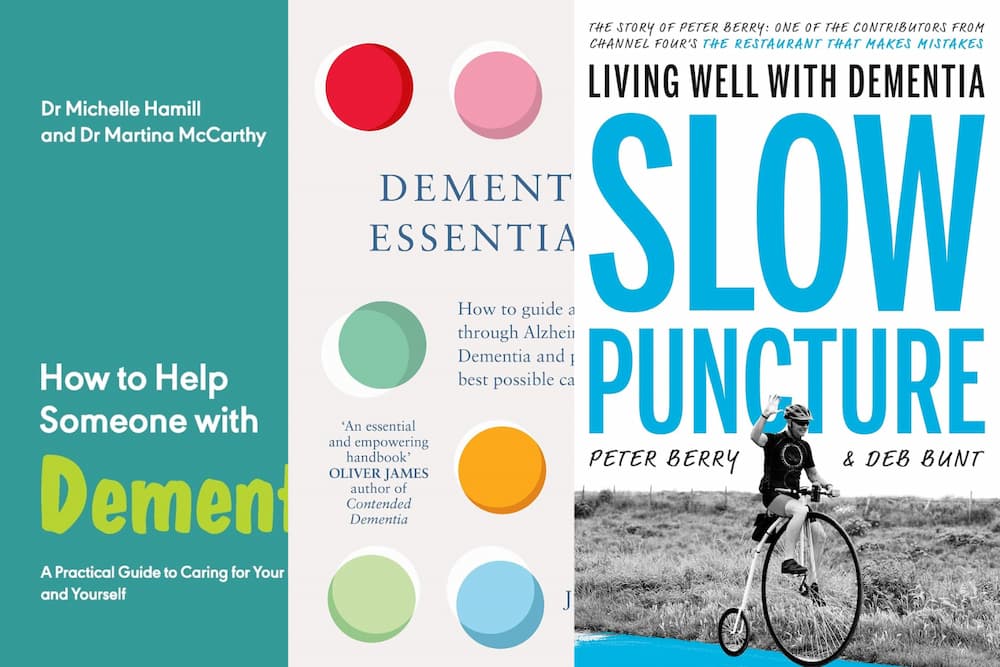Reading Well for dementia recommends helpful reading for people living with dementia. The booklist provides reliable information, advice and support as well as personal stories and age-appropriate books for children.
Visas šias „The Reading Agency“ knygas galima pasiskolinti su bibliotekos kortele.
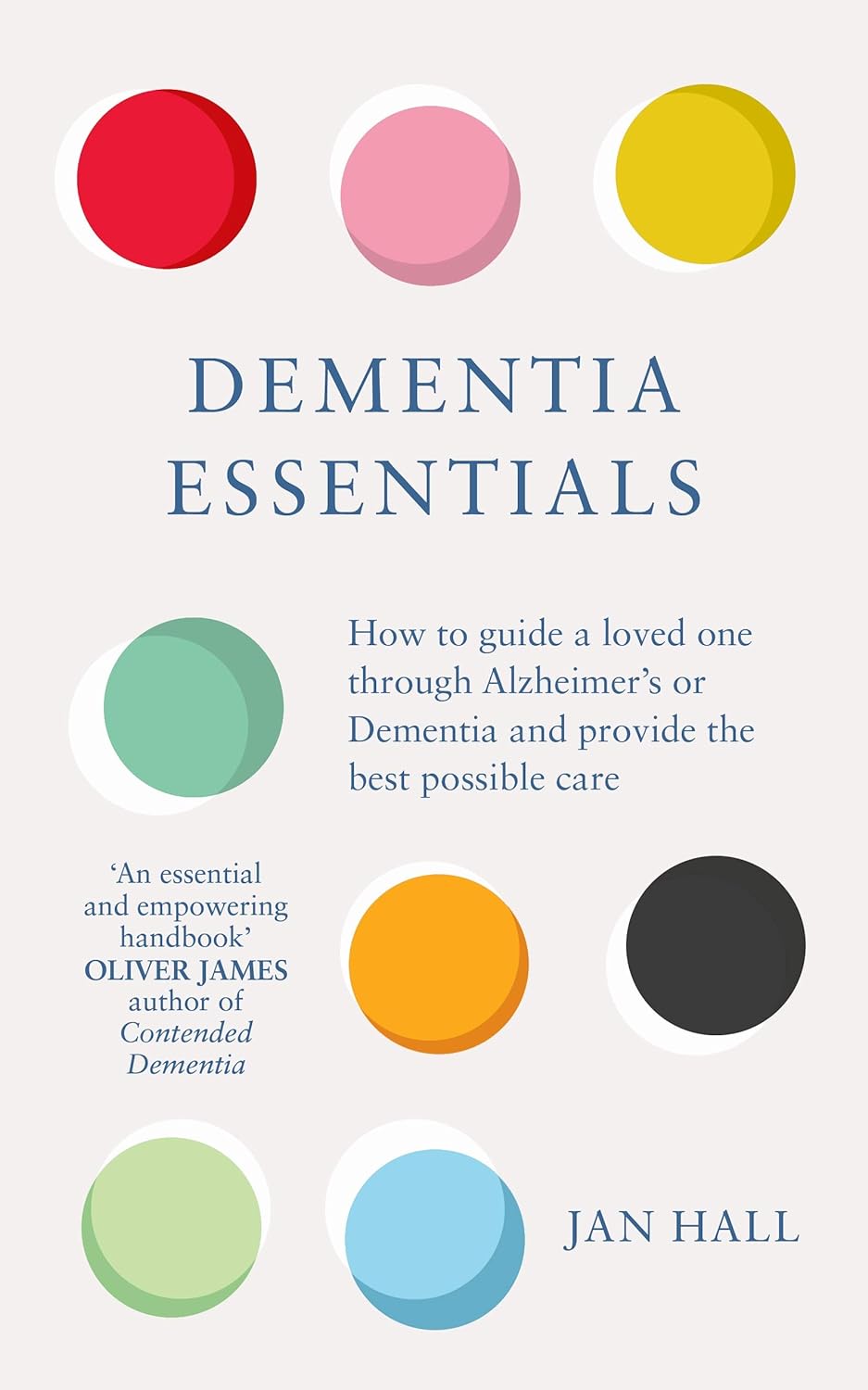
Dementia Essentials
Jan Hall
When a loved one has been diagnosed with dementia, many family members assume new roles as carers, helping their relative to remain safe, happy and as independent as possible. This text presents a practical, realistic and reassuring guide to help you and the person with dementia on the journey ahead. Written by a real carer with first-hand experience of the challenges dementia poses, the book is full of essential advice, personal insights and helpful strategies.
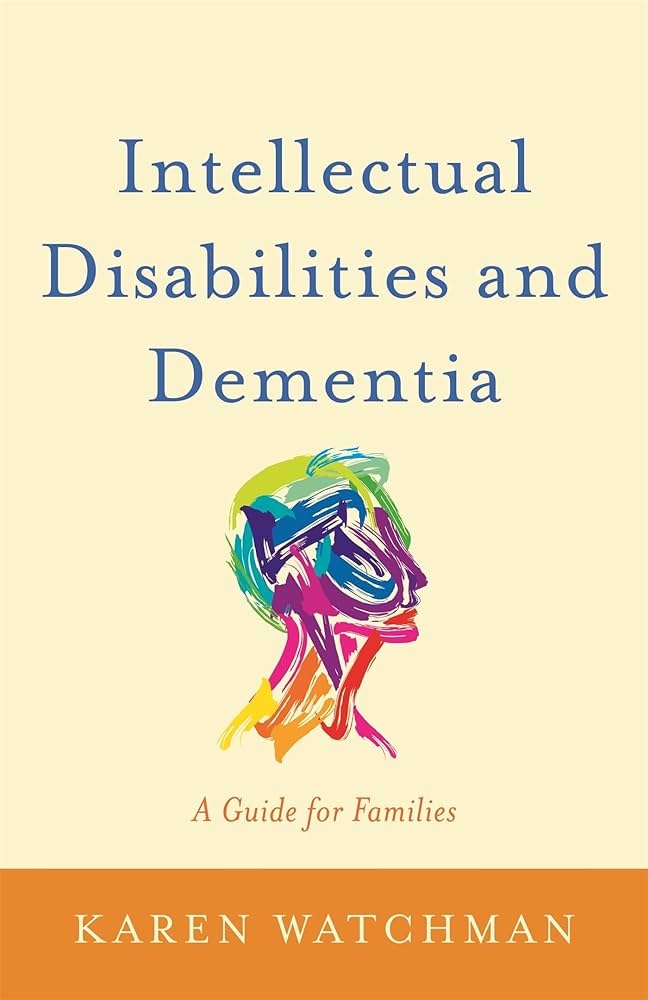
Intellectual Disabilities and Dementia: A Guide for Families
Karen Watchman
Presenting the most up-to-date information available about dementia and intellectual disabilities, this book brings together the latest international research and evidence-based practice, and describes clearly the relevance and implications for support and services. Recognised experts from the UK, Ireland, the USA, Canada, Australia and the Netherlands discuss good practice and the way forward in relation to assessment, diagnosis, interventions, staff knowledge and training, care pathways, service design, measuring outcomes and the experiences of individuals, families and carers.
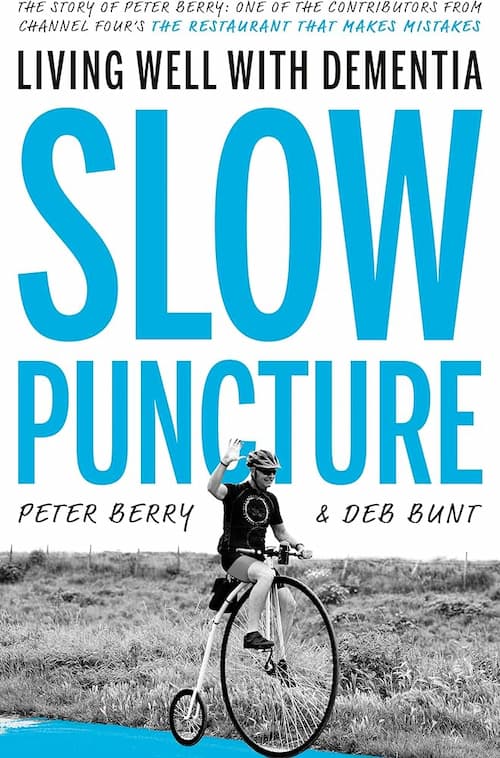
Slow Puncture: Living Well with Dementia
Peter Berry and Deb Bunt
This is an account of a year in the life of Peter Berry, an ordinary man living in a sleepy Suffolk village. Happily married and running a successful business, Peter’s life changes when, at the age of fifty, he is given a terminal diagnosis of early-onset dementia. Since that day, he has learned to live with his very own ‘dementia monster’. From depression and suicide attempts through to his determination to confront his dementia, Peter has embarked on a series of challenges to show that ‘life isn’t over with dementia, it’s just a little different’. Peter has now raised thousands of pounds for dementia charities, cycling hundreds of miles in his quest to show that life is always worth living.
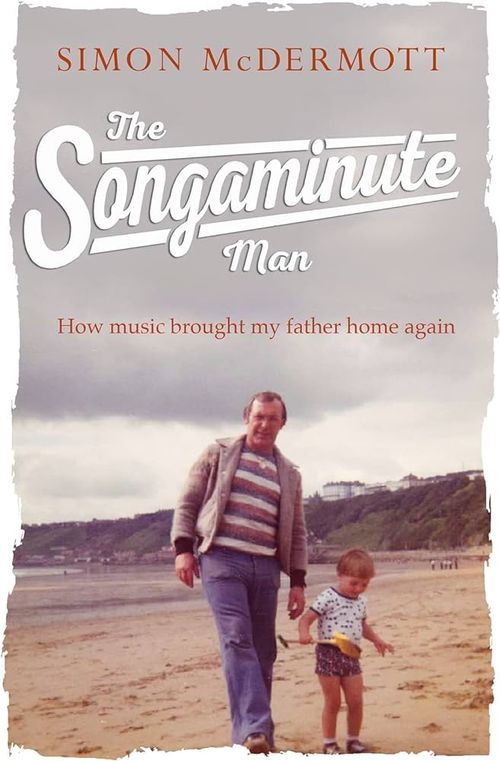
The Songaminute Man
Simon McDermott
The heartbreaking true account of his son struggling to come to terms with his father’s dementia. A tribute to the unbreakable bond between father and son. When Simon McDermott first noticed his dad Ted’s sudden flares of temper and fits of forgetfulness, he couldn’t have guessed what lay ahead. Then came the devastating, inevitable diagnosis. As Ted retreated into his own world, Simon and his mum Linda desperately tried to reach him until at last: an idea. Turning the ignition in his mum’s little runaround, Simon hit play on Ted’s favourite song ‘Quando Quando Quando’. And like that, they were just two mates driving around Blackburn, singing at the top of their lungs. Simon filmed their adventure, uploaded the video to YouTube and woke up to messages, tweets and his phone ringing off the hook.
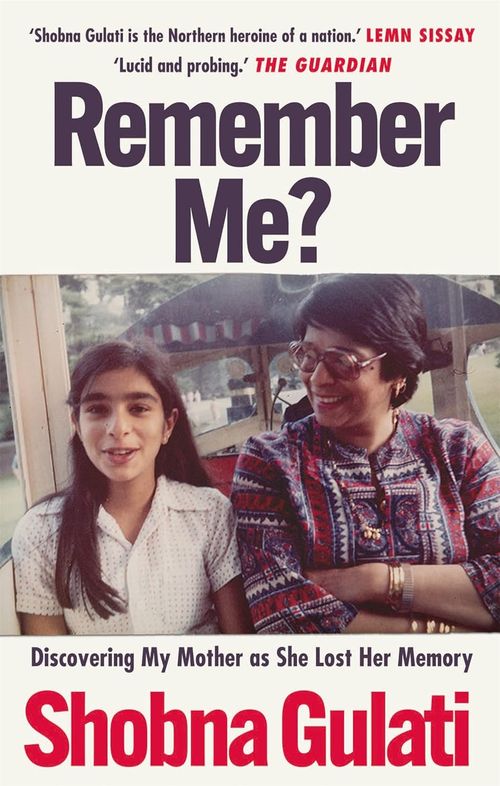
Remember Me?
Shobna Gulati
In December 2019, soon after her mother’s untimely death to dementia, Shobna Gulati discovered a box tucked away amongst her mother’s possessions. In it lay a catalogue of cut-out clippings of every time Shobna’s name had been mentioned in the press. What was strange about this discovery was that throughout Shobna’s life her mother had barely mentioned her daughter’s career highs nor the box of memories she’d filed them into. In this deeply moving, tender and humorous memoir, a daughter sets out to reclaim her mother’s past after her death and bring it into the present.
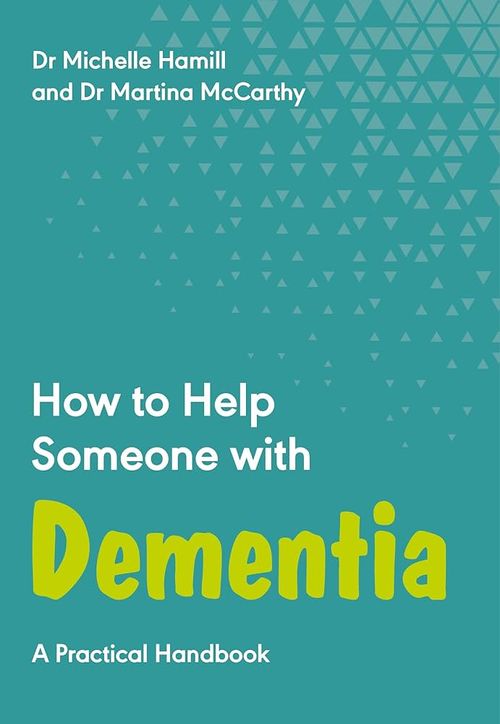
How to Help Someone with Dementia
Michelle Hamill and Dr Martina McCarthy
There can be a lot of understandable fear and worry when a loved one receives a diagnosis of dementia. Whilst the stigma of dementia can be powerful it should not restrict a person from finding meaning and purpose in life. Psychologists Dr Michelle Hamill and Dr Martina McCarthy believe that a holistic and relationship-centred understanding of dementia can help to acknowledge the challenges of the condition, whilst enabling people to live with dignity. This book provides insights and ideas to improve quality of life for both you and your loved one, drawing on the experiences of people who are caring for a person with dementia from our services.
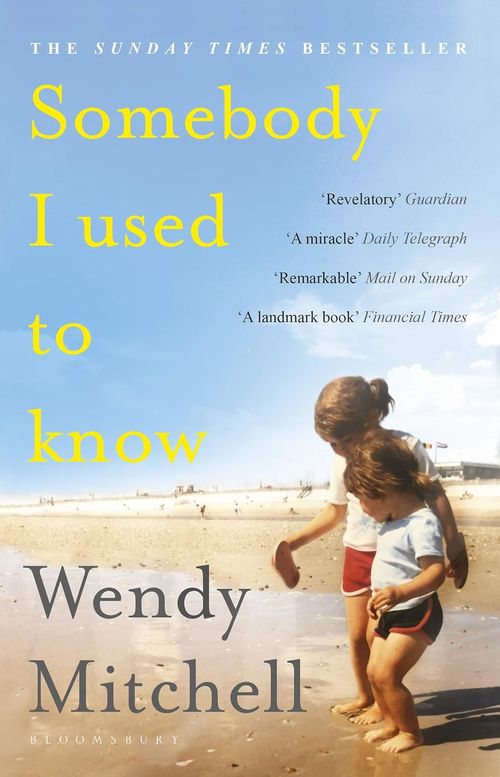
Somebody I Used to Know
Wendy Mitchell
When Wendy Mitchell was diagnosed with dementia at the age of 58, she had to say goodbye to the woman she once was. Her career in the NHS, her ability to drive, cook and run – the various shades of her independence – were suddenly gone. Yet Wendy was determined not to give in. She was, and still is, propelled by a need to live in the moment, never knowing which version of herself might surface tomorrow. In this phenomenal memoir, Wendy grapples with questions most of us have never had to consider. What do you value when loss of memory reframes what you have, how you have lived and what you stand to lose? What happens when you can no longer recognise your own daughters, or even, on the foggiest of days, yourself?
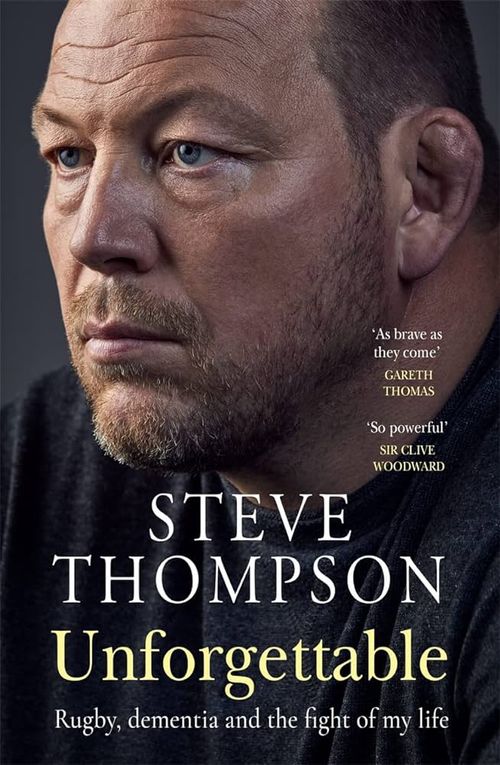
Unforgettable: Rugby, Dementia and the Fight of My Life
Steve Thompson
In 2003, England won the Rugby World Cup. Steve Thompson was there, in England’s front row, at the heart of the match, and at the heart of the scrum – one of sport’s most destructive, repetitive impacts. But the triumphs came at a cost. When rugby union turned professional, Steve was plunged into a game where raw power meant everything. Today, he remembers nothing about playing in that final. In his words, watching the tape back is like watching a ghost. The years of hurt in an era of professional meat shields, and the culture of sucking up punishment and coming back for more, have taken a terrible toll. Steve has been diagnosed with early onset dementia, and probable chronic traumatic encephalopathy. He is in his early forties. There are days when he doesn’t remember the names of his wife and four kids. But Steve doesn’t hate the game of rugby. He wants to change it.
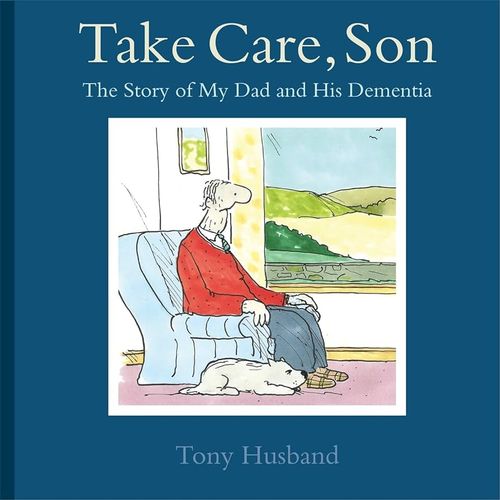
Take Care, Son: The Story of My Dad and His Dementia
Tony Husband
When Ron Husband started to forget things – dates, names, appointments – daft things, important things – it took a while to realise that this was ‘a different form of forgetting’. But it was the first sign of the illness that gradually took him away from the family he loved.

United: Caring For Our Loved Ones Living with Dementia
Gina Awad
This title captures the real life tales of people with dementia, and from the loved ones and professional carers who support them. Stories from families living with the realities of dementia are illustrated in a humorous but moving style and will be relatable and supportive for anyone touched by dementia in their lives.
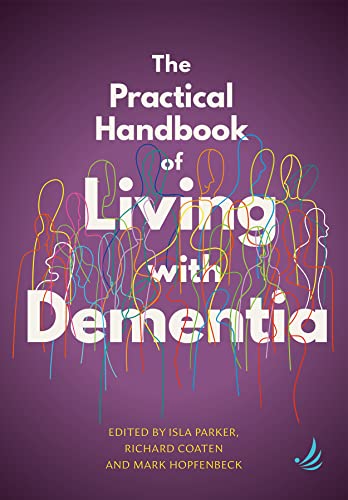
The Practical Handbook of Living with Dementia
Isla Parjker
This wide-ranging book takes a person-centred approach to supporting the person and their families/carers to live with dementia and challenge the stigma attached to the condition. Divided into four parts, it starts with the voices of people with dementia themselves, as they describe their own experience and how they are living with the disease. It moves on to look at how the range of caring and support professions can help people living with dementia and their families plan and prepare for and cope better with their deteriorating condition. It then turns to practical aspects of living with dementia – dementia in the workplace, communication, safety and the role of technology and design in prolonging independence – and day-to-day considerations.
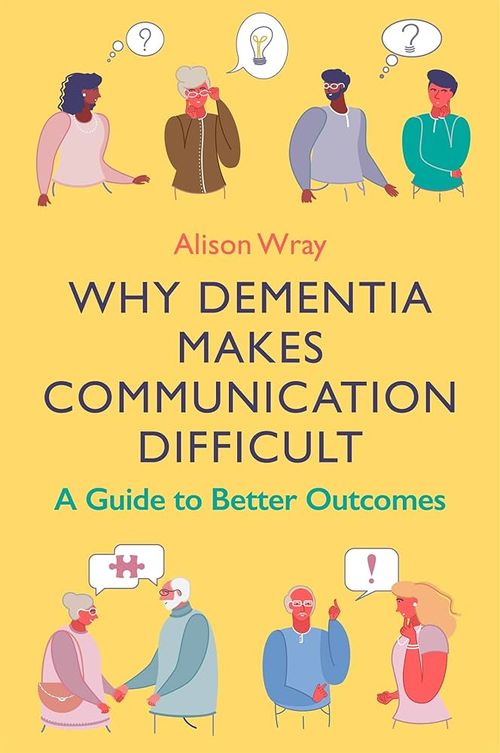
Why Dementia Makes Communication Difficult
Jenny Yip
A major effect of dementia is its impact on communication. Alison Wray explains why the changes occur and offers practical ideas for avoiding key pitfalls. With attention also to the fraught question of well-intentioned lying, this book offers a wealth of ways to improve conversations and relationships when someone is living with a dementia.
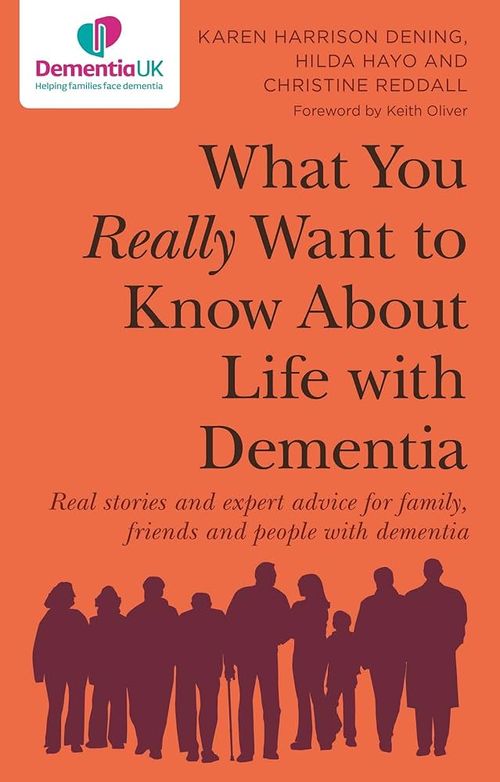
What You Really Want to Know About Live with Dementia
Karen Harrison Dening
A family-led vision of what carers of people with dementia need and want to know. Supporting families and carers in their day-to-day life with dementia, this unique resource combines real stories from families with expert responses and advice for specific issues and concerns.
This resource is based on the real stories and real questions brought to the Admiral Nurse Dementia Helpline, peer support groups and clinical networks. Including questions around diagnosis, peer support, balancing risks, care transitions and end of life planning, the chapters are devised to support you, and give you the tools to live better, when dementia enters your life.
Skolintis What You Really Want to Know About Live with Dementia→
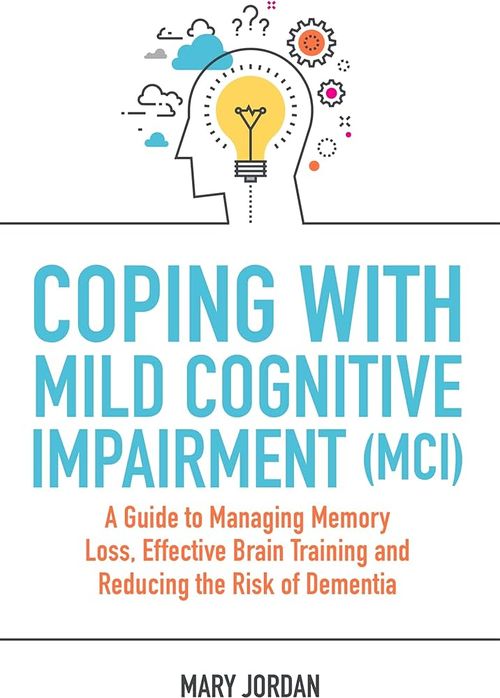
Coping with Mild Cognitive Impairment
Mary Jordan
Adults are being increasingly diagnosed with Mild Cognitive Impairment (MCI), and this book provides strategies for concerned individuals to help slow the onset of the condition. Around 50% of adults with MCI go on to develop dementia, but research shows that self-help through early intervention and preventative measures can hugely slow this down.
The self-help measures in this book include memory aids, health and lifestyle changes, activities, therapies and technological aids. All of them are known to improve cognition and can be incorporated into daily life. Every measure is firmly based in current research, and this book is also applicable to those with early-stage dementia wishing to delay the onset of more severe cognitive impairment.
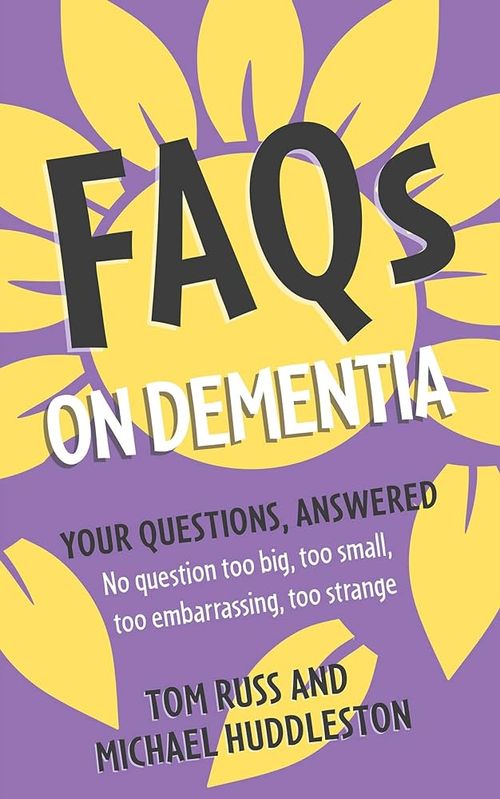
FAQs on Dementia
Dr Tom Russ
Will my partner stop loving me now they have dementia? Does my mum have to go into a home now? Is dementia a terminal illness? All these questions, and hundreds more, are covered in this short but powerful, helpful, practical guide to understanding the nature, and impact, of dementia. Read at your leisure, or dip in and out when you most need the support or to shine a light on the issues and concerns that are making you uncomfortable or unhappy, and to bring them out of the shadows so you can understand and accept them.
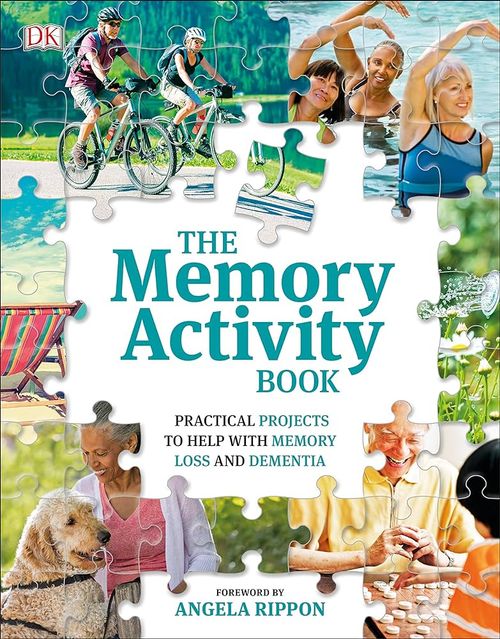
The Memory Activity Handbook
Helen Lambert
Using step-by-step ideas designed to stimulate and entertain, dementia care specialist Helen Lambert explains how engaging in a variety of simple activities can benefit different parts of the brain and help to keep your mind fitter for longer. What’s more, everyone can join in: each activity contains hints and tips that not only show you how to do it, but also include ways to adapt the various physical exercises, games, and craft projects for different abilities, or to include family and friends.
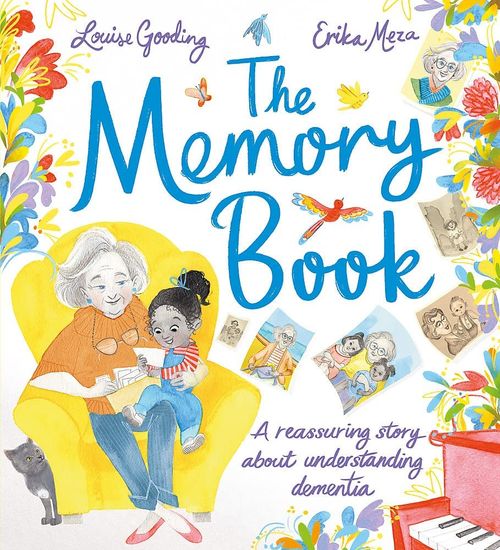
The Memory Book
Louise Gooding
I love visiting my grandma. We read together, play her piano, feed the birds in the garden and we love looking through her big box of photos. But when Grandma starts to forget who the people in the photographs are, Mum explains that Grandma is living with something called dementia. She says, ‘Grandma is still the person we know and love, she’s just a little different now.’ Here is a reassuring story about the love between a little girl and her grandma, with practical information to help young children understand dementia and the changes it can bring.
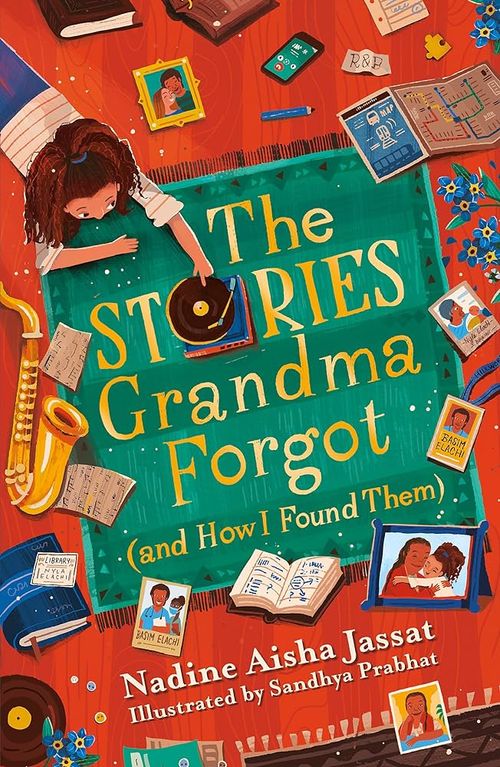
The Stories Grandma Forgot (And How I Found Them)
Nadine Aisha Jassat
‘Grandma Farida has Alzheimer’s – but I’m going to help her remember a huge secret’. Twelve-year-old Nyla’s dad died when she was four, or that’s what she’s been told. So when Grandma Farida insists she saw him in the local supermarket, Nyla wonders if Grandma is simply ‘time travelling’ again – the phrase she uses when Grandma forgets. But Grandma is Nyla’s best friend and when she asks Nyla to find her dad and bring him home, she decides to make a brand new promise to her Grandma – to find him. As Nyla turns detective and sets out on a journey through her family’s past to try and find the truth, she also hopes that uncovering important stories will help her understand who she is, and where she fits in the world.
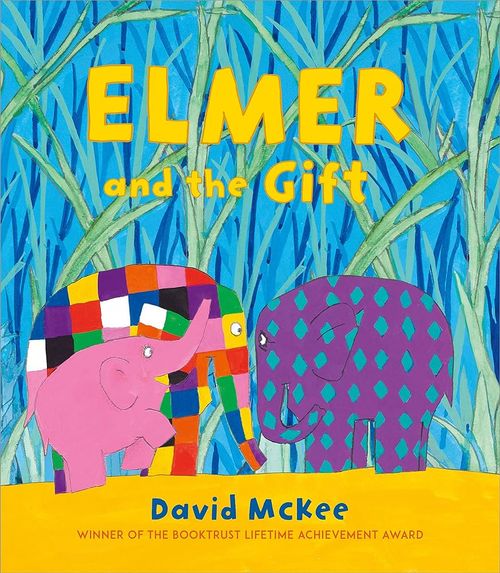
Elmer and the Gift
Davidas McKee
Aunt Zelda has a gift to give to Elmer from his Grandpa Eldo, but she can’t remember what it is or where it is. Zelda’s memory sometimes escapes her, and her hearing isn’t what it used to be, so they set off together to find Grandpa Eldo and solve the mystery of the forgotten gift.
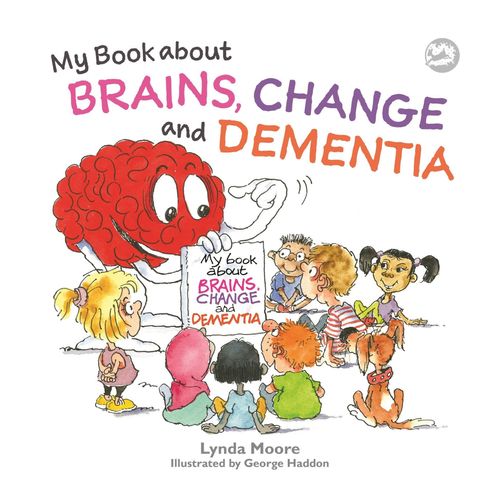
My Book About Brains, Changes and Dementia
Lynda Moore
Explaining the complex concepts of dementia – such as brain function, disease progression and death – in a direct and age-appropriate way, as well as exploring children’s feelings about these issues, this book caters for children aged 4+ who have a loved one at any stage of dementia.

